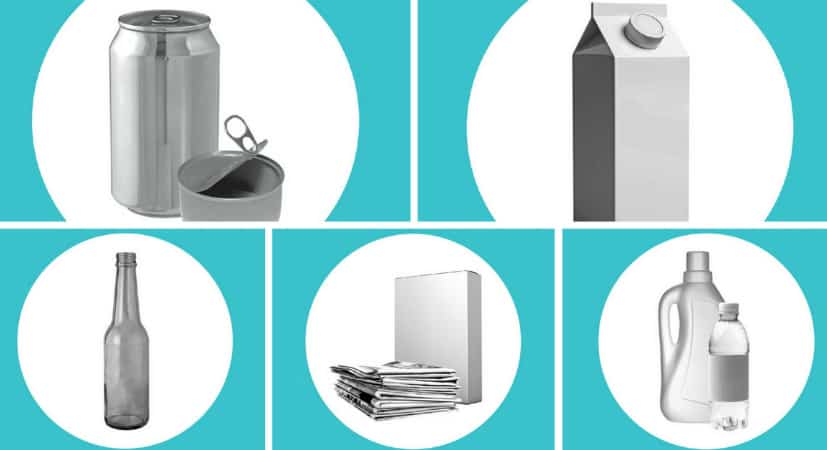The Limits of Recycling: Why We Won’t Recycle Our Way Out Of Our Waste Problem
I have worked for the Cuyahoga County Solid Waste District for 28 years and over that time I have seen attitudes about waste change. What used to be a “put it on the curb and forget about it” attitude is now a “put it on the curb and feel guilty about it” attitude. To compensate, we recycle.
This shift in attitude is very important as we all need to be aware of the impact of our waste but we also need to be aware that we will not recycle our way out of our waste problem. There are limits to recycling. Local recyclers report that people contaminate their recycling by putting non-recyclable trash in their curbside recycling. This is at a time when China, the world’s largest importer of our recyclables, has banned most of its global recycling imports because of contamination.
As a result, recycling properly is more important than ever. We can’t put trash into our recycling bins and wish it would all get recycled. The sortation technology at our recycling facilities is not designed to recycle everything and neither are our global recycling markets.
Recently the Solid Waste District has received some pushback regarding the recycling instructions it has distributed through its recycling education campaign. Many perceive that the District has changed the rules and restricted recycling. This is partly true. To develop the list of what can and cannot be recovered for recycling in Cuyahoga County, we went to the source – the four local material recovery facilities (MRFs) that collect and sort our household recyclables. Here is what we learned:
-
Improper Recycling Threatens the Sustainability of our Programs
People are loading up their recycling carts with a lot of things the recycling machinery is not designed to capture. This includes things hazardous to employees like syringes, propane tanks, and large pieces of scrap metal. This also includes things that tangle in the machinery like clothing, plastic bags, rubber hoses, hangers, plus non-recyclable plastics. This contamination has to be removed and then landfilled at a very high cost. This cost will eventually be passed onto the communities or services may end.
-
Recycling is Driven by Economics
Yes, recycling rules have changed over time because recyclables are commodities that are sold and traded throughout the world. Recycling is an industry fueled by environmental responsibility but ultimately driven by economics.
The economics of recycling are rarely discussed but are at the center of the issue of recyclability. Currently, supply exceeds demand mainly because of recent restrictions China has placed on the materials they will import including mixed plastics and paper. It is clear that China is tired of being the world’s dumping ground and is now demanding cleaner, sorted recyclables since they use them to produce the goods we buy here at home.
-
Only Certain Materials are Recoverable through Curbside Recycling
Curbside recycling is designed to collect five types of materials. These five materials form the basis of the District’s message around recycling and reflect the industry standard at this time. New markets may develop down the road but for now, the following are recoverable through curbside recycling:
- Cans
- Cartons (milk, soup, broth, and juice)
- Glass bottles and jars
- Paper and cardboard (excluding sanitary items and those contaminated with food)
- Plastic bottles and jugs
-
Stop Wish-Cycling
The District and your recycling processor want everyone to stop “wishcycling” which is putting things in curbside recycling that you wish would be recycled) and stick to the core items that can be recycled. There are other ways to recycle things that are considered contamination in the curbside bin but still can be recycled separately in other ways. For instance, plastic bags can be taken to grocery and retail stores for recycling and scrap metal can be taken to a scrap yard.
While recycling has its limits, we urge everyone to learn the recycling rules to recycle more and recycle better. You can do that by contacting the Solid Waste District or visiting CuyahogaRecycles.org. We are the leading resource in Cuyahoga County for information, expertise, and programs that support sustainable materials management and reduce the environmental impact of waste.
POSTED ON:
